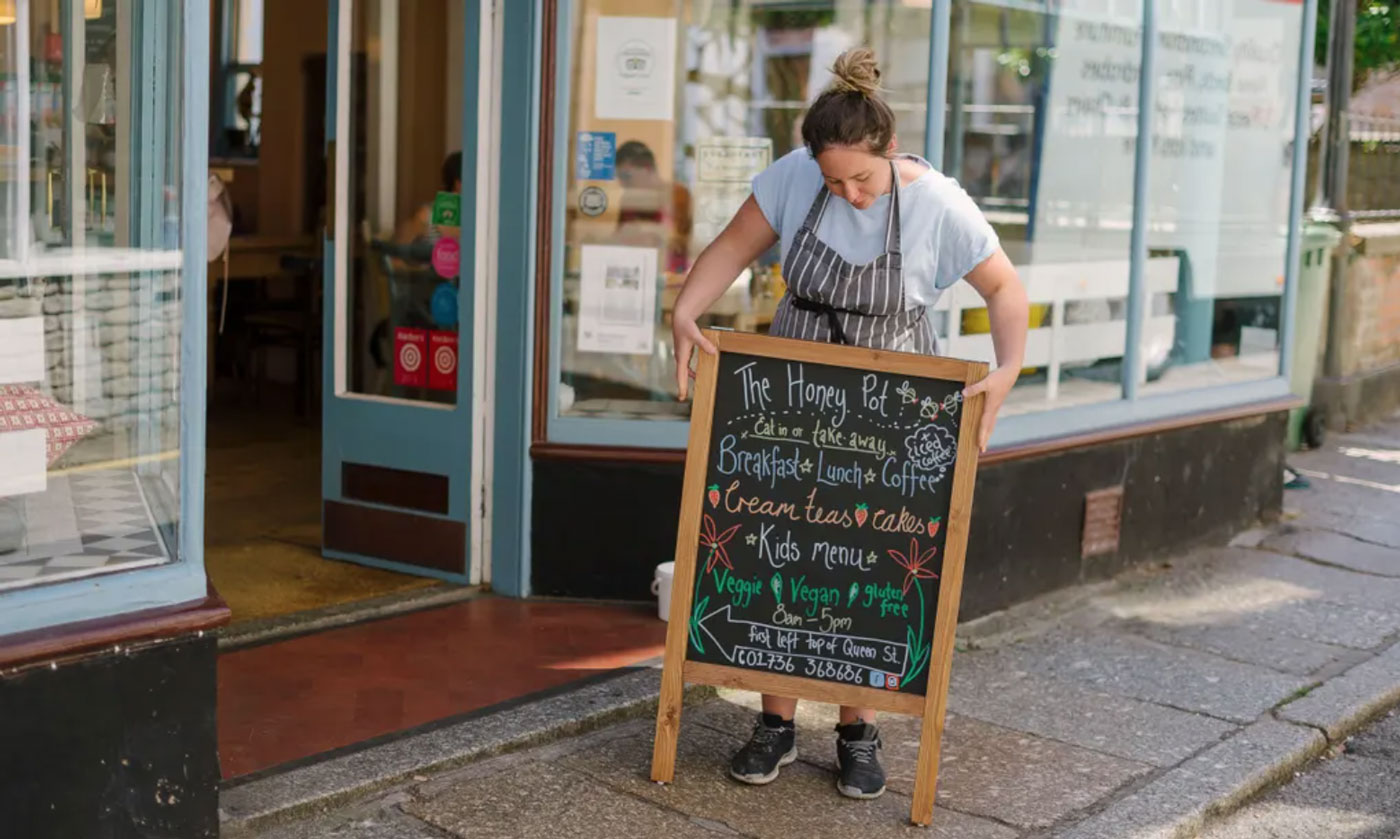Photograph: Jim Wileman/The Guardian
Back in summer 2018, Penzance became the first plastic-free town in the United Kingdom thanks to an initiative set up by Surfers Against Sewage. The aim was simple, to minimise our town’s contribution to the plastic crisis.
With more and more plastic washing up on Cornish beaches SAS decided it was time to take action. Plastic Free Penzance has worked with local businesses in Penzance, to promote those who have significantly reduced their use of plastic with ‘Plastic Free Status’.
We officially gained our “plastic free status” in December 2017 after the cafe made a conscious effort to become more sustainable. We now use compostable takeaway containers, paper straws, wooden cutlery, paper bags, cardboard cake trays compostable coffee cups and wooden stirrers.
Wherever possible we compost suitable food waste, cooked food waste feeds local chickens and we have a salad dressing refill scheme.
All of our clotted cream and crème fraiche is delivered in Tupperware tubs and we re-use all of those for food storage. We only use one domestic sized wheelie bin of waste a week. We have one bin the same size for composting. The rest is all recycled and re-used.
Our meat and eggs are free-range, our produce is locally grown or organic, and our bread is from St Ives Bakery.
The plastic free movement in the headlines the following year with The Guardian and The Telegraph featuring The Honey Pot alongside other plastic free businesses.
In the year that the 26-year-old has run the cafe, and signed up to the movement, she, too, has improved its environmental credentials. Plastic straws are banned and all the takeaway packaging, including coffee cups, is biodegradable. “I have also been challenging my suppliers,” Gunderson says. “I’ll order six aubergines and they’ll all come individually wrapped in plastic …”
Gunderson’s appeal to suppliers echoes the challenge of preaching to the unconverted. Consumer society has clingfilmed itself into a corner thanks to the near-magical qualities of an infinite range of plastics, whose use is baked into our supermarket economy.
The Guardian, 2018.
In October 2019 BBC News published an editorial piece on my business ethos and environmental practices.
There’s no denying though that buying compostable tea-bags, special recyclable juice cartons and generally being greener has a higher cost to the business than less eco-friendly products. But it’s a cost Rachel is prepared to shoulder. In general she says people understand the slightly higher prices and her staff are always on hand to explain their green credentials.
BBC News, 2018
Thank you to all out customers who’ve supported our decision to become more environmentally conscious. We appreciate each and every one of you.


